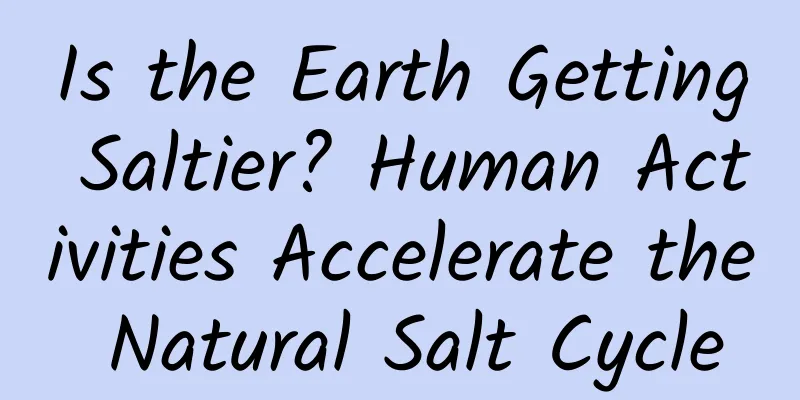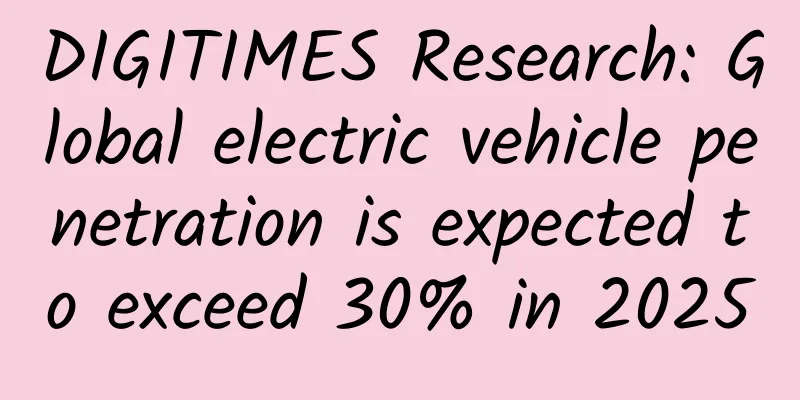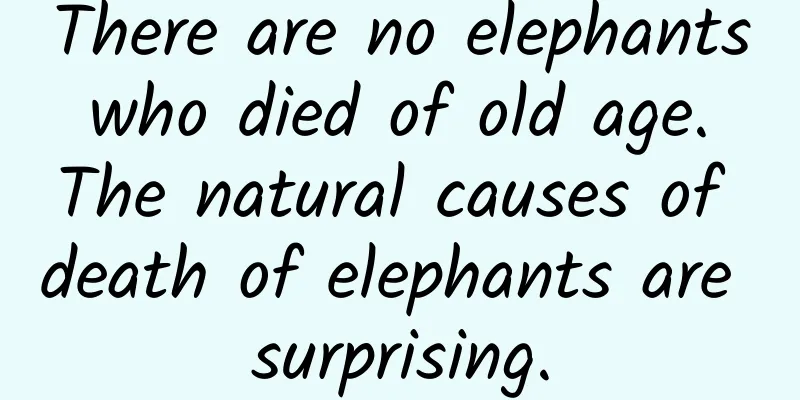Is the Earth Getting Saltier? Human Activities Accelerate the Natural Salt Cycle

|
Science Times reporter Ma Aiping Professor Sujay Kaushal of the University of Maryland and researchers from related institutions recently published a paper in the British journal Nature Reviews Earth and Environment, pointing out that the natural "salt cycle" is mainly driven by relatively slow geological and hydrological processes, which bring different salts to the earth's surface; while human activities such as mining, land development, and agricultural production have contributed to the artificial "salt cycle", affecting the concentration and circulation of salt on a global scale. If this trend continues, it may pose an "existential threat" to humans. Human activities accelerate the natural "salt cycle" When it comes to ecological and environmental pollutants, the first things that come to mind are fossil fuels, microplastics, etc. "Salt" does not seem to be considered a very serious pollutant, but this new study found that the increase in salt production and use in human activities has changed the natural balance of salt ions in the Earth system. As we all know, salt refers to a compound composed of metal ions or ammonium ions and acid ions, including the commonly used table salt sodium chloride, as well as calcium sulfate, copper chloride and other substances. However, human-caused salinization has affected about 2.5 billion acres of soil worldwide, an area similar to that of the United States. The article shows that due to human activities, the air, soil and fresh water on the earth are becoming saltier. If this trend continues, the earth will continue to become "saltier" and may pose a threat to human survival. The authors describe these disturbances as an anthropogenic "salt cycle", identifying for the first time the human impact on salt concentrations and cycles on a globally interconnected scale, and comparing the natural and anthropogenic salt cycles. Using household products containing salt can also interfere with the "salt cycle" The article points out that human activities can interfere with the normal "salt cycle", including irrigation, road de-icing, food preparation, mining, construction, wastewater treatment, and even the use of salt-containing household products such as detergents, which can increase salt in the ground, freshwater systems and air. For example, large-scale over-irrigation will cause the salt content in the soil to continue to rise, affecting crop production; and industrial activities such as mining and construction will also release a large amount of salt ions, which will enter freshwater resources through wastewater discharge. For example, the use of salt for road deicing will also have an impact on the environment by producing sodium and chloride particles from road salt atomization. It is reported that in the United States, the salt used for road deicing accounted for 44% of the total salt consumption in the country between 2013 and 2017. Furthermore, the paper shows that salinization can have knock-on effects: For example, salt-rich dust from drying lake beds can accelerate snow melt in the region, which can harm communities that rely on snowpack for water. Professor Sujay Kaushal said that salt has a small ionic radius and can easily wedge itself between soil particles, combining with pollutants in soil and sediments, thereby circulating in the environment and producing a chemical mixture with harmful effects. "If you imagine the Earth as a 'living' organism, when salt accumulates too much, it may affect the function of important 'organs' or ecosystems." Salinization threatens the environment and human health Studies have shown that salinization affects freshwater resources, soil fertility and human health. Excessive salt causes groundwater and river water to be polluted and salinized, reducing the amount of freshwater available and affecting agricultural development. At the same time, salt affects the growth of plants, causing them to become dehydrated or even poisoned, while salinization also affects the development, survival, death and parasitism of aquatic organisms, thus destroying the balance of the ecosystem. In addition, salinization also has direct and indirect chain effects on human health, especially respiratory diseases, mosquito-borne infectious diseases and mental health. For example, too much sodium in drinking water may cause high blood pressure, and dust rich in salt ions is deposited in the atmosphere, and ingestion through inhalation, skin contact, etc. will increase the risk of cancer. The article points out that if environmental limits are exceeded, anthropogenic "salt cycles" could cause irreversible damage to ecosystems, drinking water, human health, infrastructure and the Earth system. The authors therefore call for the need to establish a "planetary boundary for the safe and sustainable use of salt" to study, quantify and limit anthropogenic "salt cycling" in order to improve future management methods. |
>>: Jellyfish are poisonous, so why are sea cucumbers edible?
Recommend
"Perfect Diary" content marketing model!
The rapid popularity of Perfect Diary , a domesti...
Soaking the server in water turns out to be for... | Digital Literacy
Audit expert: Zheng Yuanpan Professor of Zhengzho...
The mantle is solid, so how did the oceanic crust subduct into it?
There is a question on Zhihu: "The mantle is...
Wooden 'robot fish' swims through Barcelona harbour, a forerunner of modern air-independent propulsion
More than 170 years ago in Spain, a young man beg...
A major project that humans delayed for 7 years was repaired by beavers overnight?
They completed a project that had been delayed fo...
The core methodology of user retention under refined operations!
With the disappearance of traffic dividends and t...
A picture drawn on a napkin won him the Nobel Prize and became the "Father of Big Science"
Lawrence invented and developed the cyclotron, cr...
Practical tips: To improve SMS marketing ROI, these three aspects are the key
Based on his own practice, the author shares rele...
How can online education create a training camp with high conversion rates?
1. Introduction After several years of developmen...
Unable to resist the temptation, Japan's Rinnai has gone beyond the small and beautiful or top-heavy
Since the beginning of this year, Japan's Rin...
APICloud builds an ecosystem to accelerate mobile development
APICloud 2015 product launch conference was succe...
"Consciousness" may no longer be exclusive to humans? The mystery of consciousness in tiny insects
Your browser does not support the video tag Autho...
Is your iPhone lagging more and more? Turn off these 3 default settings and your phone will run smoother
1. Turn off automatic system updates [[398263]] S...
How much does it cost to customize the Yichang steel mini program? What is the price of Yichang steel mini program customization?
In order to better penetrate into various industr...
Two aspects to explore how to write product comparison copy to be more attractive
Based on different comparison references, the art...









